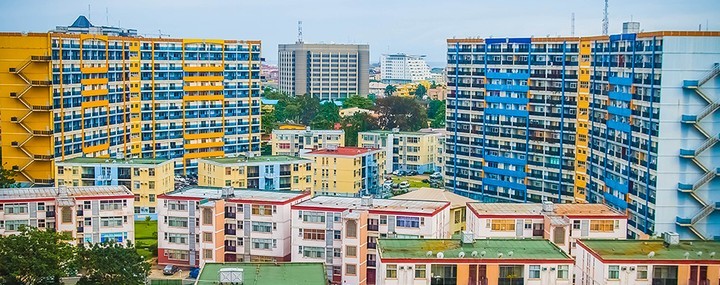Housing the city’s poor initiative (I)
Virtually, all households in the city experience one challenge or the other due to the absence of those to attend to very essential services at critical moments. Almost all the housing estates and individual houses in the city engage electricians, plumbers, carpenters, cleaners and others. Almost all the households engage house helps to take care […]

FILE PHOTO
Virtually, all households in the city experience one challenge or the other due to the absence of those to attend to very essential services at critical moments. Almost all the housing estates and individual houses in the city engage electricians, plumbers, carpenters, cleaners and others. Almost all the households engage house helps to take care of the house chores and other errands or household responsibilities. Unfortunately, the greater percentage does not live in the houses they work or close to the estates.
Almost all households with electrical challenges that require urgent attention had no option than to spend the night in darkness. The failure of the cooling system, was more irritating. Because, in the absence of the power supply, the air conditioner and the fans would only be toys, amidst the excruciating heat as recently experienced.
The other popular services needed in the city are automobile technical services. They include the automobile mechanics of all kinds, vulcanisers, car washes and the rest. They are recognised in the land use programme of the city, by earmarking lands referred to as employment area. But they were misconstrued and used for offices and commercial developments. We would not forget the restaurant services and attendants and the shopkeepers engaged by all categories of shop owners to attend to costumers’ essential services. The list goes on and on.
It would never be arguable, that all of these citizens whose activities are mentioned are low-income earners, and that the city earnestly needs their services for its sustainability and wellbeing. Specifically, there is no private estate maintenance agency or individual house owner that does not earnestly need the services of the low-income technicians to be in business or helping households to ensure their comfort and wellbeing. They also need to earn their livelihood for survival where their services are needed.
- ICPC boss visits late Justice Ayoola’s home in Ibadan
- Reps uncover over N500b in unused TETFund for Nigerian universities
It is the government, through the Federal Capital Development Authority that commenced the city development, with the provision of infrastructure, public offices and residential accommodation for the civil servants. But, presently, apart from the public offices, almost all other developments are privately owned, even those built by the FCDA were sold to the occupants. It is only at the initial stage of the city’s development that a labour camp was provided at Nyanya.
If we would not be wrong to state it, in the entire country, it is only in Abuja city that development is wholly regulated, controlled and monitored from its first phase of development. This is because it is modern, with the absence of any traditional or historical component which could serve as any impediment for enforcement. Thus, residential, commercial, recreational, industrial and all the other land uses are clearly specified, restricted and controlled, with zero tolerance to violations.
There are low, medium and high-density areas in the city, according to the residential land use plan. The Development Control Guidelines and Regulations, specify a maximum of two floors only, containing only two families, represented by two housing units of any number of bedrooms from two and above with their boys’ quarters, for the low-density plots. For the medium density, it is only a block of three floors with six families or six flats. And for high density it is a block of four floors with eight families or eight flats.
It is only the low-density plots that have provision for the development of boys or service quarters, which could serve and is meant for the accommodation of the household helps. The boys’ quarters are not meant for the technicians or skilled workers, because their engagements, or services would not be confined to the individual house or estate.
Because the developments are now privately driven, they are thus meant for profit; no private concern would sink resources into where there won’t be returns. But, the costs of renting all the categories of the above housing types are very much beyond the reach of the low and medium-income citizens. Meanwhile, there are many of the houses presently without tenants. Meaning, still there is no return on the investment. Many of the houses are now on sale because of such challenges.
Truly, the city recognises the utmost importance and accepts the informal service providers, with their low-income status in the plan, but the system rejects them. All the system operators and managers are well aware. There was a time in the past that a former minister let the cat out of the bag by openly making a public statement, that, Abuja is only for the rich. Which means it’s not for the poor. But had his advisers studied the master plan very well, they would have discovered that there is a proposal for addressing these types of challenges and guided him.
To be continued
